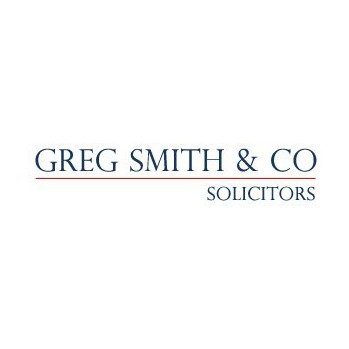Best Commercial Real Estate Lawyers in Wynyard
Share your needs with us, get contacted by law firms.
Free. Takes 2 min.
Free Guide to Hiring a Real Estate Lawyer
List of the best lawyers in Wynyard, Australia
About Commercial Real Estate Law in Wynyard, Australia
Commercial Real Estate Law in Wynyard, Australia, is a branch of Australian property law focusing mainly on the sale and purchase of commercial properties such as offices, warehouses, retail spaces, and factory buildings. It deals with matters including land and property acquisitions, rental agreements, property disputes and zoning issues. Knowing and understanding the regulations and laws specific to Wynyard is vital for making informed commercial real estate decisions.
Why You May Need a Lawyer
In the realm of commercial real estate, you might need a lawyer to help navigate legal complexities in various situations. These can include drafting or reviewing lease agreements, resolving a property dispute, negotiating on buying or selling properties, dealing with tenant issues, understanding zoning laws, managing property investment, and offering tax advisory services.
Local Laws Overview
Wynyard, Australia operates under the conveyancing laws of Tasmania and Australia's broader property laws. The Valuer General does property valuation and land taxation issues. Land ownership falls under the 'Torrens' system, with all land ownerships registered at the Land Titles Office. Wynyard also has specific zoning laws impacting what type of business can operate within certain areas. Lease agreements, changes of property ownership, stamp duty, and Goods and Services Tax (GST) also have legal aspects that might require consultation with a legal expert.
Frequently Asked Questions
1. How is commercial lease different from residential lease?
Commercial leases are different from residential leases as they are subject to different legislation. Commercial leases do not have as many consumer protection laws as residential leases, making legal advice more essential.
2. Do I have to pay GST on commercial property transaction?
Yes, a 10% GST generally applies to commercial property transactions, unless a special exemption is made. It's vital to consider GST implications when planning commercial real estate transactions.
3. Can I dispute a property valuation?
Yes, if you disagree with a valuation made by the Valuer General, you can lodge an objection within 60 days of notice issue.
4. What should be included in a commercial lease agreement?
A standard commercial lease agreement should include terms of lease, rent price, rent review mechanism, tenant's and landlord's duties, any restriction on business operation and details about fit-out and refit provisions among others.
5. What is the 'cooling off' period?
'Cooling off' period is a time frame in which a buyer can withdraw from a sale contract without penalties. In Tasmania, there is no statutory cooling-off period for commercial property, unlike residential one.
Additional Resources
For additional information, you might turn to The Law Society of Tasmania or The Property Council of Australia. These organizations provide further resources and information about commercial real estate law. The Wynyard local council’s website also provides specific local rules and regulations.
Next Steps
If you need legal assistance in commercial real estate, consider seeking advice from a solicitor familiar with Wynyard's real estate landscape. They will help you to understand complex legal concepts, local laws and help negotiate terms favoring your interest.
Lawzana helps you find the best lawyers and law firms in Wynyard through a curated and pre-screened list of qualified legal professionals. Our platform offers rankings and detailed profiles of attorneys and law firms, allowing you to compare based on practice areas, including Commercial Real Estate, experience, and client feedback.
Each profile includes a description of the firm's areas of practice, client reviews, team members and partners, year of establishment, spoken languages, office locations, contact information, social media presence, and any published articles or resources. Most firms on our platform speak English and are experienced in both local and international legal matters.
Get a quote from top-rated law firms in Wynyard, Australia — quickly, securely, and without unnecessary hassle.
Disclaimer:
The information provided on this page is for general informational purposes only and does not constitute legal advice. While we strive to ensure the accuracy and relevance of the content, legal information may change over time, and interpretations of the law can vary. You should always consult with a qualified legal professional for advice specific to your situation.
We disclaim all liability for actions taken or not taken based on the content of this page. If you believe any information is incorrect or outdated, please contact us, and we will review and update it where appropriate.








